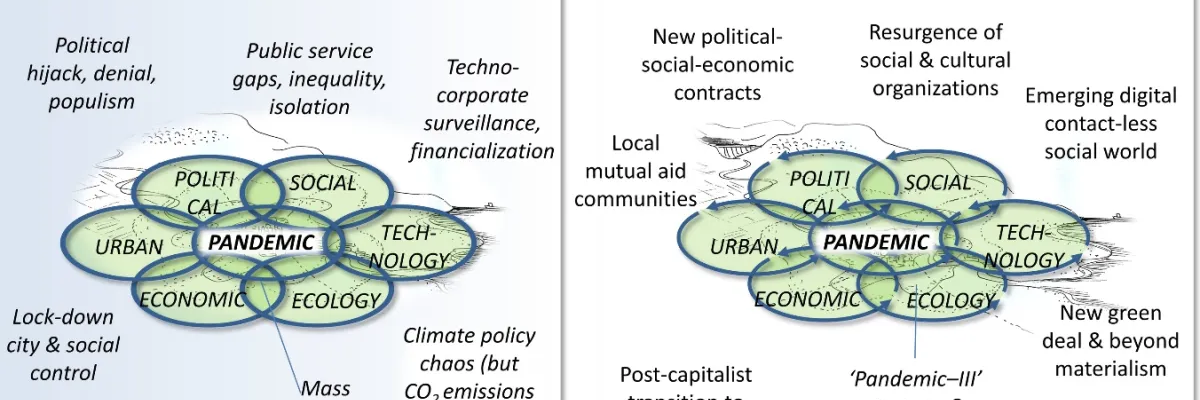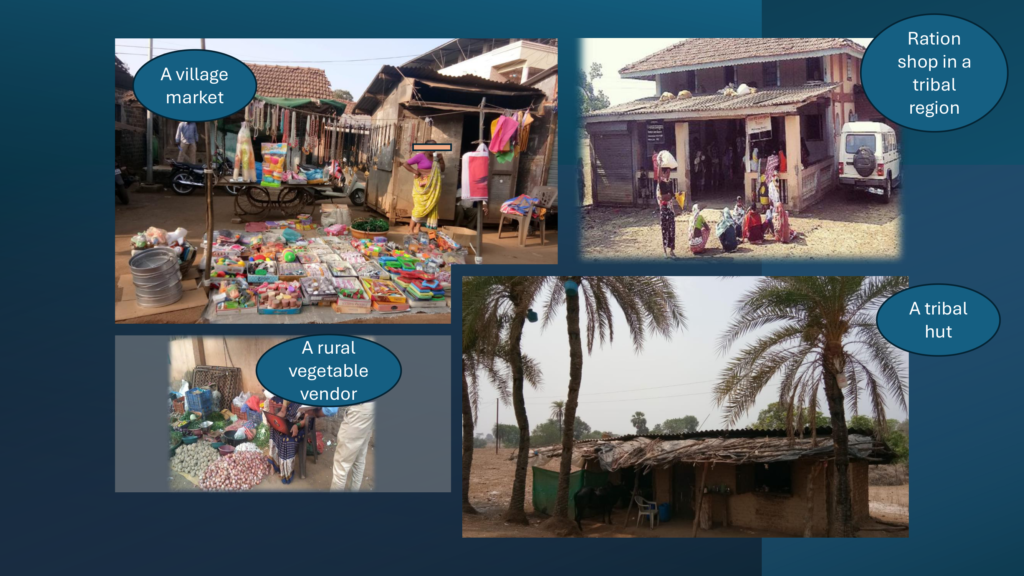City Know-hows

Target audience
City leaders and city planners in low- and middle-income countries.
The problem
We expose serious structural problems in the housing, transport, health and water, sanitation and hygiene sectors. These structural weaknesses inhibit the efficiency of the urban systems whilst at the same time limiting the ability of policy makers to effectively respond to pandemics such as COVID-19.
What we did and why
We used Ravetz’s framework on ‘nexus of syndromes and connexus of synergies’ between various elements of public life (see FFI below). This allowed us to explore inter-related policy failures/successes in Ghana that contribute to poor public health and lack of pandemic preparedness, particularly as they relate to social, technological, economic, ecological, political issues of not just COVID-19 but any future pandemics. Through a review of the literature on public policy responses to pandemics, we observed that the current urban planning system in Ghana leaves many people behind and exposes the lives of many to current and future disease pandemics.
Our study’s contribution
Planning has been variously defined as the link between knowledge and action, the guidance of future action, storytelling about the future and expectation management.
Our study showed that there have been many successes and failures with regards to the public policy responses to the COVID-19 pandemic.
Our analysis suggests that of importance to both planning policy and practice, is an urban planning agenda that intensifies collaborative working with public health departments and other agencies to safeguard our collective efforts in dealing decisively with public health emergencies.
Impacts for city policy and practice
We propose an agenda for transformation which revolves around the co-evolution and co-creation of new forms of societal values that are less materialistic and individualistic but rather more egalitarian.
In response to the COVID-19 pandemic, the effective collaboration between the private, academic institutions and the public sector should serve as the strategic basis for improving Ghana’s health sector and other sectors of the economy.
We recommend the need for a new urban planning agenda that integrates health in urban planning and harmonises various elements and drivers of urban life is needed.
Further information
For further details of the concepts involved see Joe Ravetz’s paper ‘Pandemic 3.0 from crisis to transformation: exploring the COVID-19 challenge‘, online in Journal of Future Studies (2020). Our diagram is reproduced from that paper.
Full research article:
Urban planning and public policy responses to the management of COVID-19 in Ghana by David Anaafo, Ebenezer Owusu-Addo and & Stephen Appiah Takyi
Related posts

Are you prepared for the health risks of extreme heat? Our new study shows that exposure to extreme heat increases the risk of mortality from Non-Communicable Diseases. Check out our systematic review of the effects of extreme heat, both indoors and outdoors, on health in the UK.

Overweight and obesity among mothers in the urban setting was twice compared to the rural. The percentage of households with an undernourished child and an overnourished mother was high in urban settings.

Community well-being is acknowledged as being ‘greater than the sum of its parts’. Our paper identifies current gaps in Community well-being assessments and recommends participatory mixed methods.